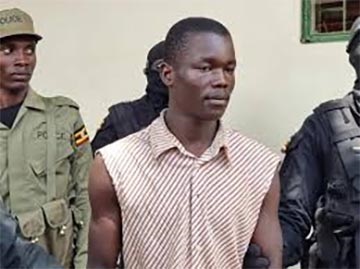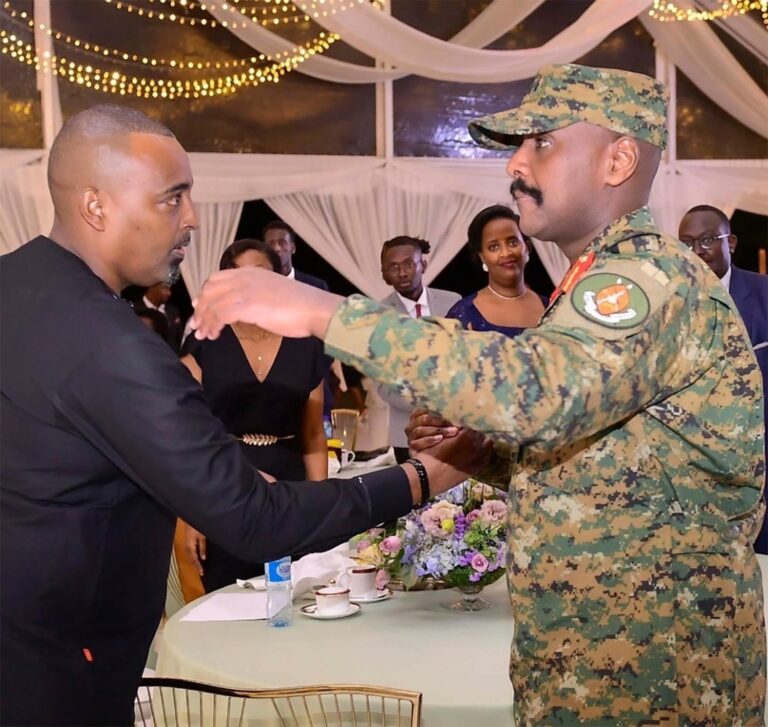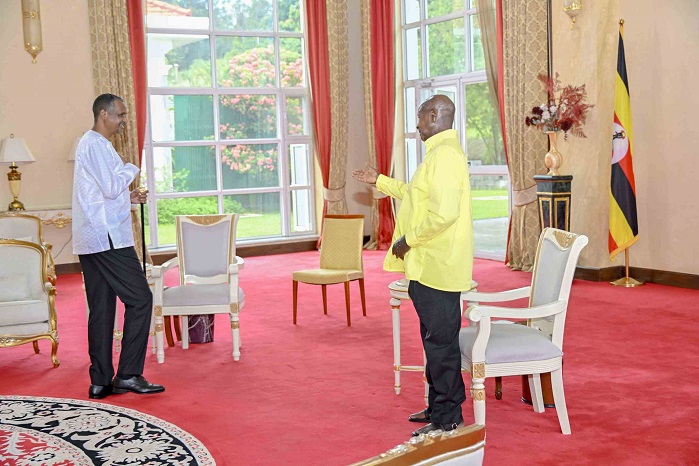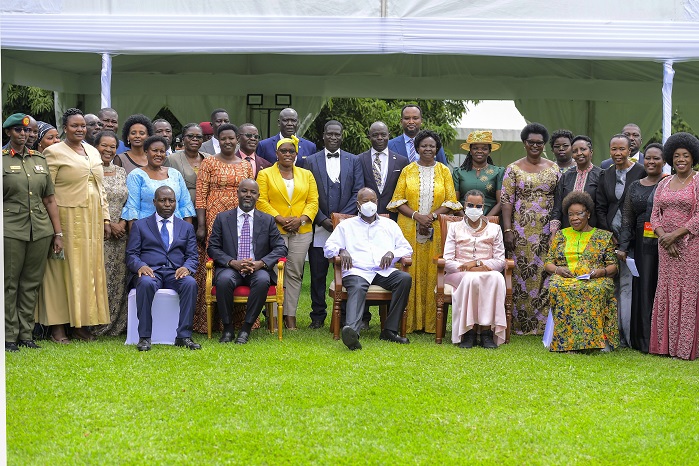
The National Prayer Breakfast 2025 – held at the State House, Entebbe
HABARI DAILY I Kampala, Uganda I When Chris Rwakasisi stood up and gave a powerful testimony about forgiveness and reconciliation, during the 27th National Prayer Breakfast held at State House Entebbe today, the country listened.
These were not just words but strong reflections on how far this country has come when it comes to democracy and upholding of human rights by those in authority. They were reflections from a man who spent 24 on death row, thinking about death by hangind every day and night, and on the mistakes he made to land him into that tight corner.
Rwakasisi, who was the minister for Security during the late former President Milton Obote II government, was arrested during the 1985 coup of the late Gen Tito Okello Lutwa. He was on June 30th 1988 convicted on 6 counts of kidnap with intent to murder and sentenced to death.
While speaking during the prayer breakfast, President Yoweri Museveni thanked Rwakasisi for his powerful testimony, highlighting the theme of the day, which was: “The Power of Forgiveness and Reconciliation.”
“When I got the case about Chris, I went somewhere in my office and prayed about it, whether to sign the document to kill him,” the President said. “And the voice came, ‘No, do not sign it,’ Accountability is not always punitive, but the other side can come and negotiate and okuhonga, which means to pay for the mistakes.”
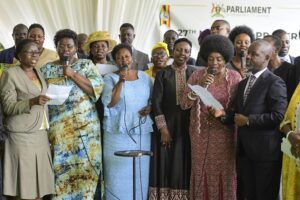
Dignitaries leading in praise and worship songs
Reflecting on Uganda’s cultural diversity, he urged citizens to find ways of blending traditional values with Christianity and other faiths.
Museveni also recalled his experiences during the bush war, narrating that after one of their victories, Gen. Kahinda Otafiire suggested hiding some guns in case the UPC government turned against them, but he rejected the idea.
“I called it treacherous. I also refused to kill Oyite Ojok, one of Obote’s top army commanders,” he noted, adding that although some people thought he was naïve, his approach to justice was guided by faith and principle.
“People thought I was naïve; that’s why you hear I started with twenty-seven guns,” he said. “The NRA fight was an open fight — not killing people, not poisoning people. The witness of Rwakasisi is very good. It is good that he has stayed alive, and I have stayed alive so that we can tell you these stories.”
The President added that Bishop Masinde’s message on forgiveness and gratitude should guide the nation in focusing on positive aspects of its journey.
“Even if there are bad things about your country, find some good things and talk about them.”
The President hailed the Parliament of Uganda for sustaining the tradition of the National Prayer Breakfast, noting that such gatherings play a vital role in uniting the country through faith and reflection.
Delivering the closing prayer, Maama Janet Kataaha Museveni, the First Lady and Minister of Education and Sports, called on Ugandans to embrace forgiveness, unity, and reconciliation as the country prepares to celebrate its 63rd Independence anniversary.
She urged the nation to reflect on God’s enduring mercy and the need to restore broken relationships within families, communities, and the nation.
She described the gathering as a moment of gratitude to God “for the miraculous way He has carried us through the course of this year and brought us safely to yet another Independence celebration.”
The prodigal son
Drawing from the parable of the prodigal son, the First Lady said the story exemplifies God’s unfailing love and forgiveness, reminding Ugandans that both the errant and the faithful need grace and understanding.
“In spite of the selfishness and irresponsibility of the prodigal son, the loving father never gave up on him,” she said, adding that “this is a picture of God’s love for us and shows that He rejoices over even one soul that turns to Him in repentance.”
She further noted that Uganda, like the rest of Africa, continues to grapple with challenges of division, corruption, tribalism, and political strife, which hinder unity and development.
“Often, we are selfish and myopic. Whether it is unbridled corruption, wars, political intrigue, disunity, tribalism, or sectarianism — all these serve to divide our communities and bring suffering to our people,” she said.
Maama Janet prayed for peace in regions experiencing conflict such as Sudan and the DRC and called for African-led solutions to continental challenges.
She urged Ugandans to reflect on their responsibility to promote peace and understanding, saying that “we often have to ask foreigners to come and mediate between our own people and nations,” yet the true solution lies in God’s guidance and the healing of hearts.
Citing 2 Corinthians 5:18–21, she reminded the nation that God has given His people the ministry of reconciliation, saying that “it was God in Christ reconciling and restoring the world to favour with Himself, not counting men’s trespasses against them.”
She emphasized that Ugandans must therefore “lay hold of divine favour and be reconciled to God” in both their personal and national lives.


